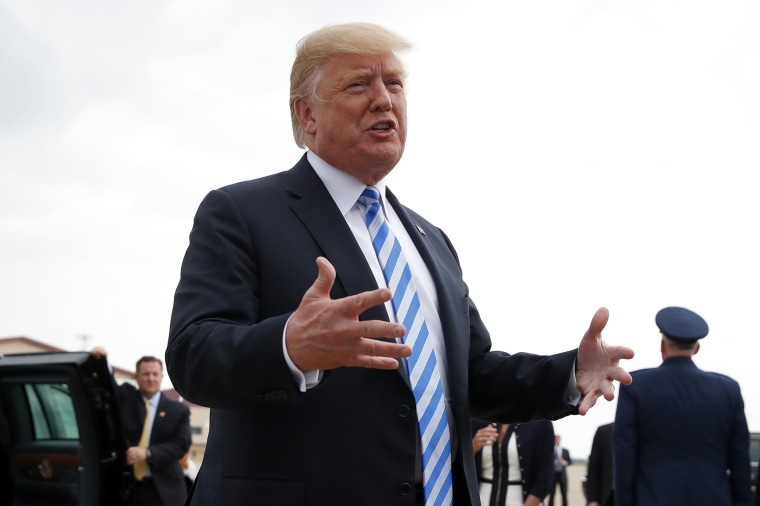It's awfully difficult for a president to screw up a White House Easter Egg Roll. The duties couldn't be easier: a president shows up, waves, thanks people for coming, and encourages the kids and their families to have fun. It's couldn't be easier.
But as regular readers may recall, Donald Trump found this surprisingly difficult in early April. The president welcomed attendees to the White House before thanking those who care for "this incredible house or building, or whatever you want to call it." He then proceeded to lie about the economy, talk about defense spending, and go on extended riff about Democrats failing to meet his demands on immigration.
Remember, this was the White House Easter Egg Roll. Most of Trump's audience was made up of young children.
It was a reminder that this president isn't just bad at governing; he struggles with his ceremonial obligations, too. As the Washington Post's Ashley Parker explained this morning, Trump's difficulties in this area are especially acute this week.
Less than two years into his first term, Trump has often come to occupy the role of pariah -- both unwelcome and unwilling to perform the basic rituals and ceremonies of the presidency, from public displays of mourning to cultural ceremonies.
After the Republican explored the possibility of a giant military parade in D.C., Vox's Ezra Klein argued, "Trump doesn't want to be a real president. He wants to be a ceremonial head of state."
I think that's largely true. A real president takes his or her governing responsibilities seriously, tackles policy challenges, and tries to advance a substantive agenda while overseeing the executive branch of a global superpower. This is clearly the part of the job Trump has no use for. He is, after all, a former reality-show personality who doesn't know anything about a president's governmental duties.
But if Trump prefers to be a ceremonial head of state, there's a problem: he's bad at this, too.
John McCain's passing created an easy pass-fail exam for the president. All he had to do was issue a pre-written statement honoring the heroic American's lifetime of service and lower the flag to half-staff. This proved too difficult for Trump.
It'd be easier to overlook missteps like these if the president were routinely able to fill the ceremonial role of his office, but that's plainly not the case.
In some cases, Trump is considered so offensive that he's excluded from important events (McCain's funeral, Barbara Bush's funeral, the recent royal wedding in the U.K., etc.). In other cases, the president boycotts events for political reasons (the White House Correspondents' Dinner, the Kennedy Center Honors, etc.).
In still other cases, Trump wants to participate in ceremonial events, but others don't want to be in his company. Some championship sports teams, for example, have declined recent White House invitations.
But the most jarring examples are the events in which Trump tries and fails. The Easter Egg Roll. The awkward walk with Queen Elizabeth. The paper-towel throwing in Puerto Rico. The clumsy responses to mass shootings.
The presidency is a profoundly difficult job that includes disparate responsibilities. A year and a half into the Trump era, it's not yet clear which of these duties meets Trump's unique skill set.
